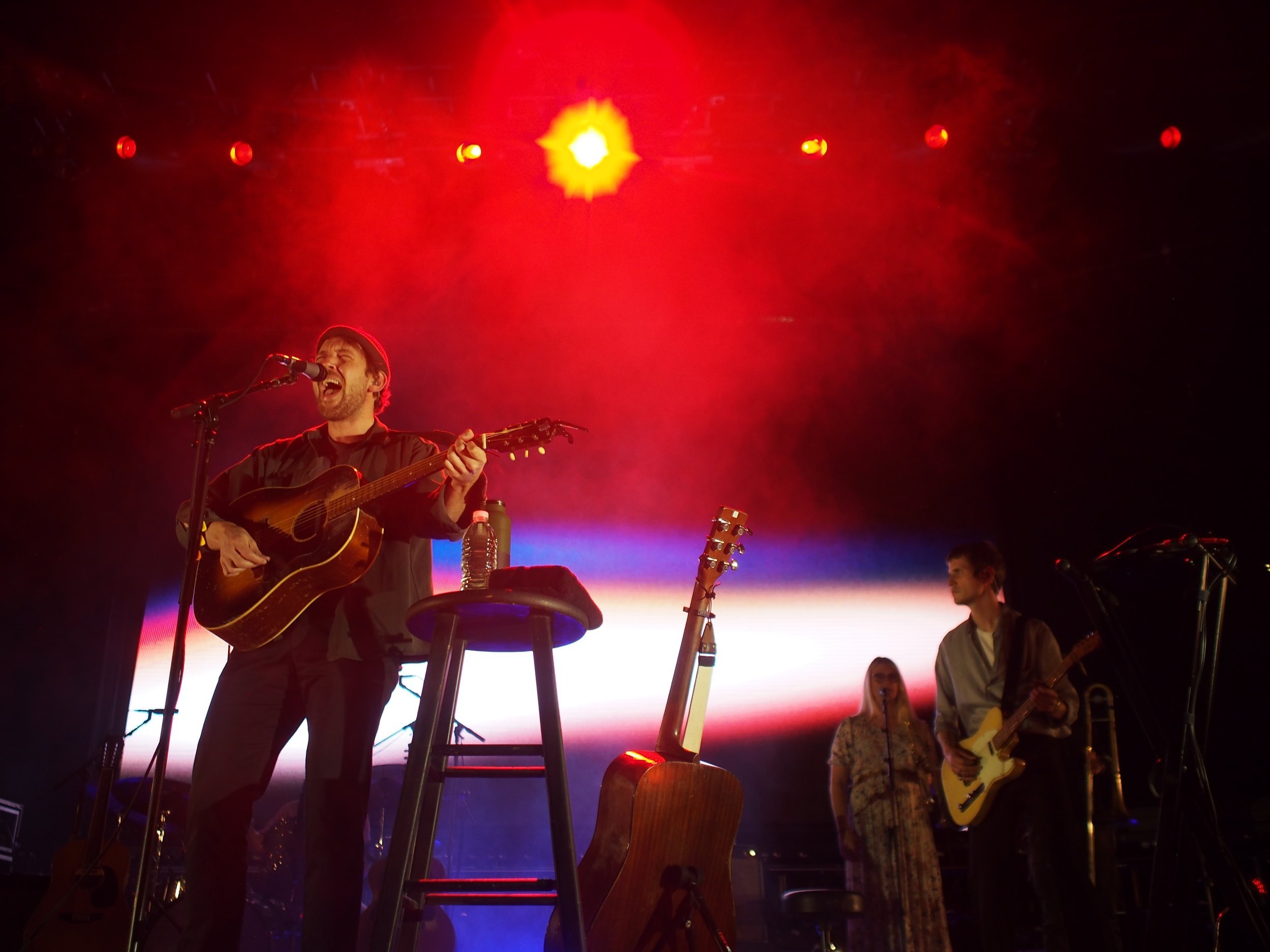
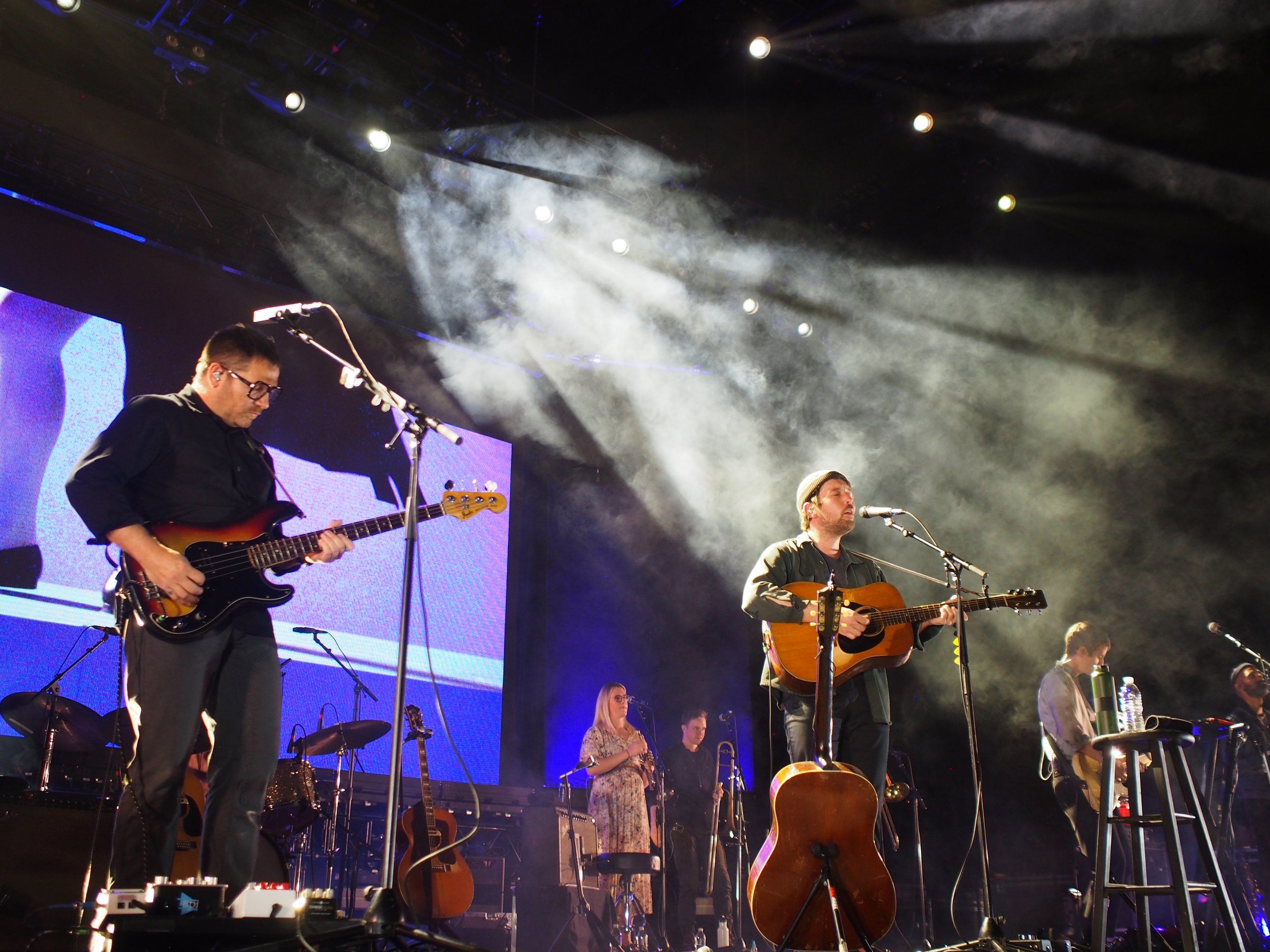
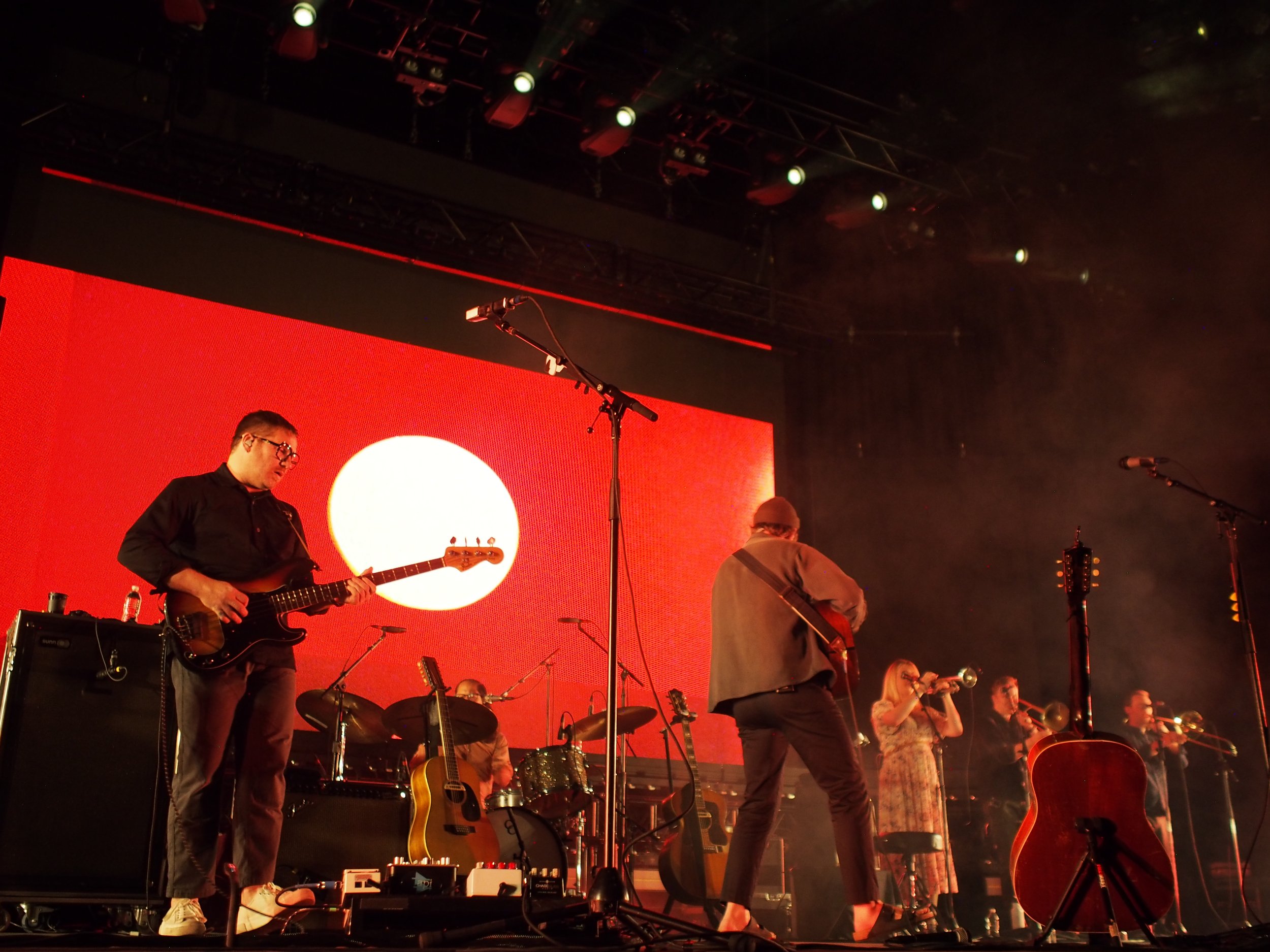
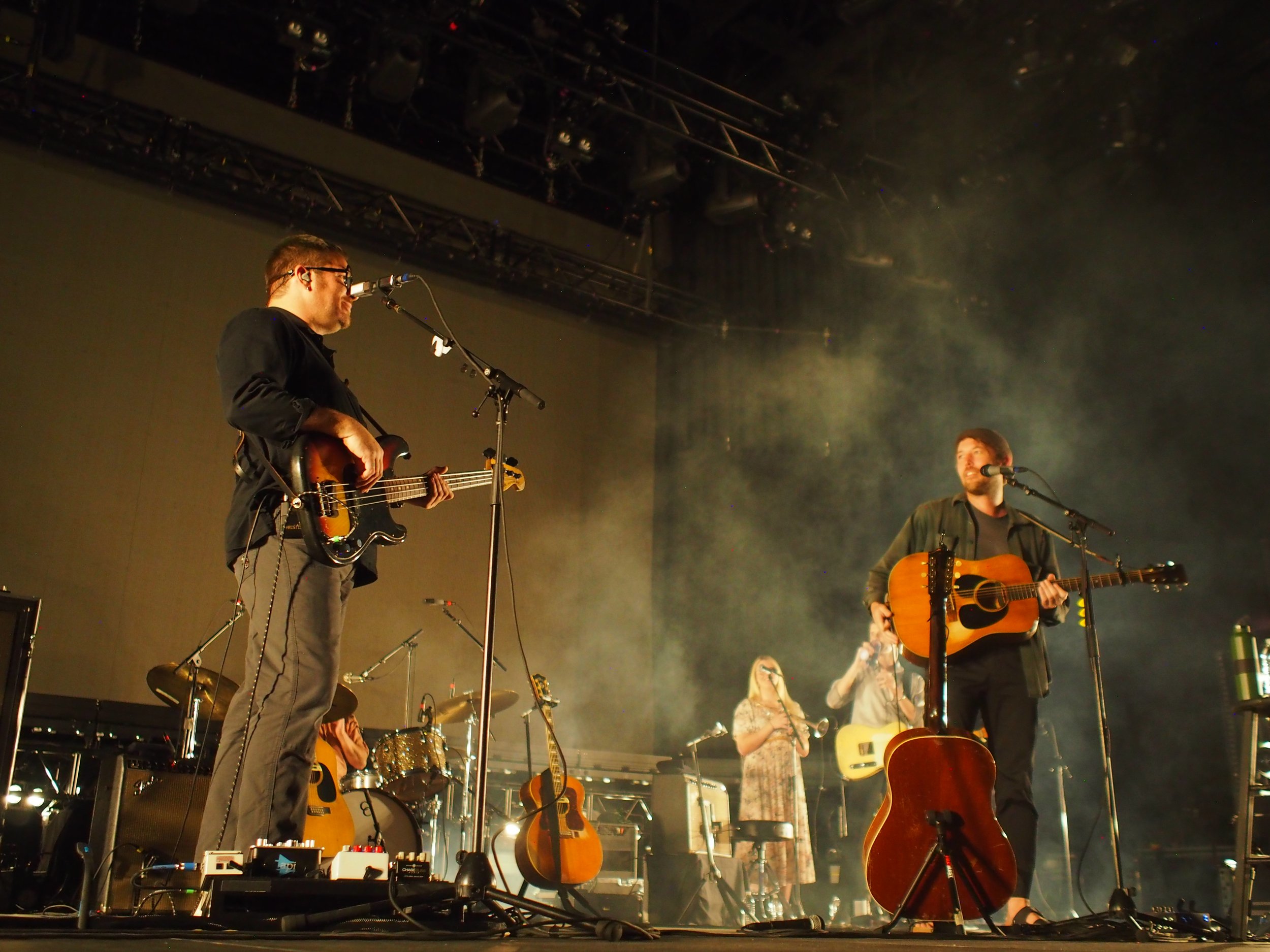
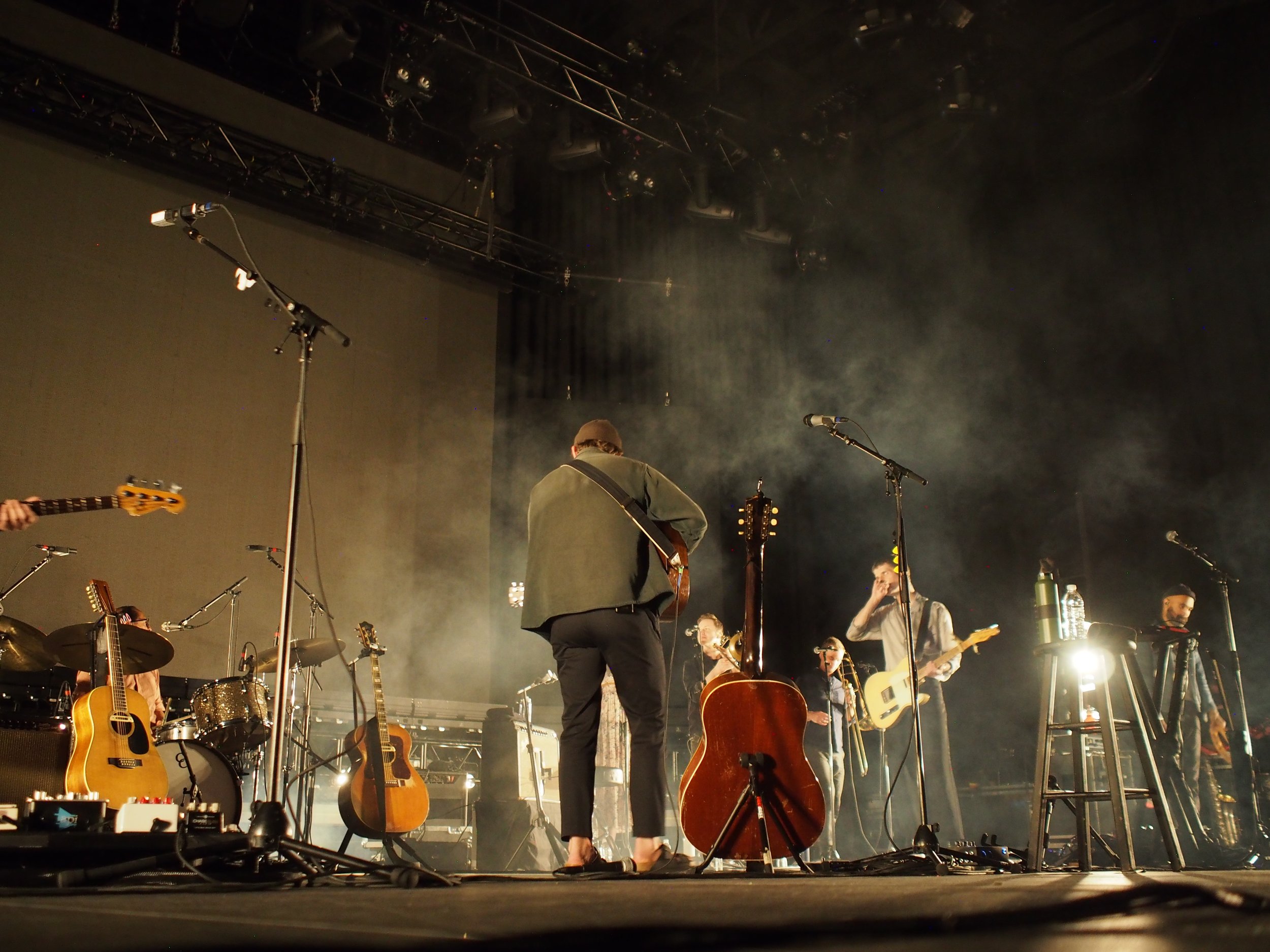
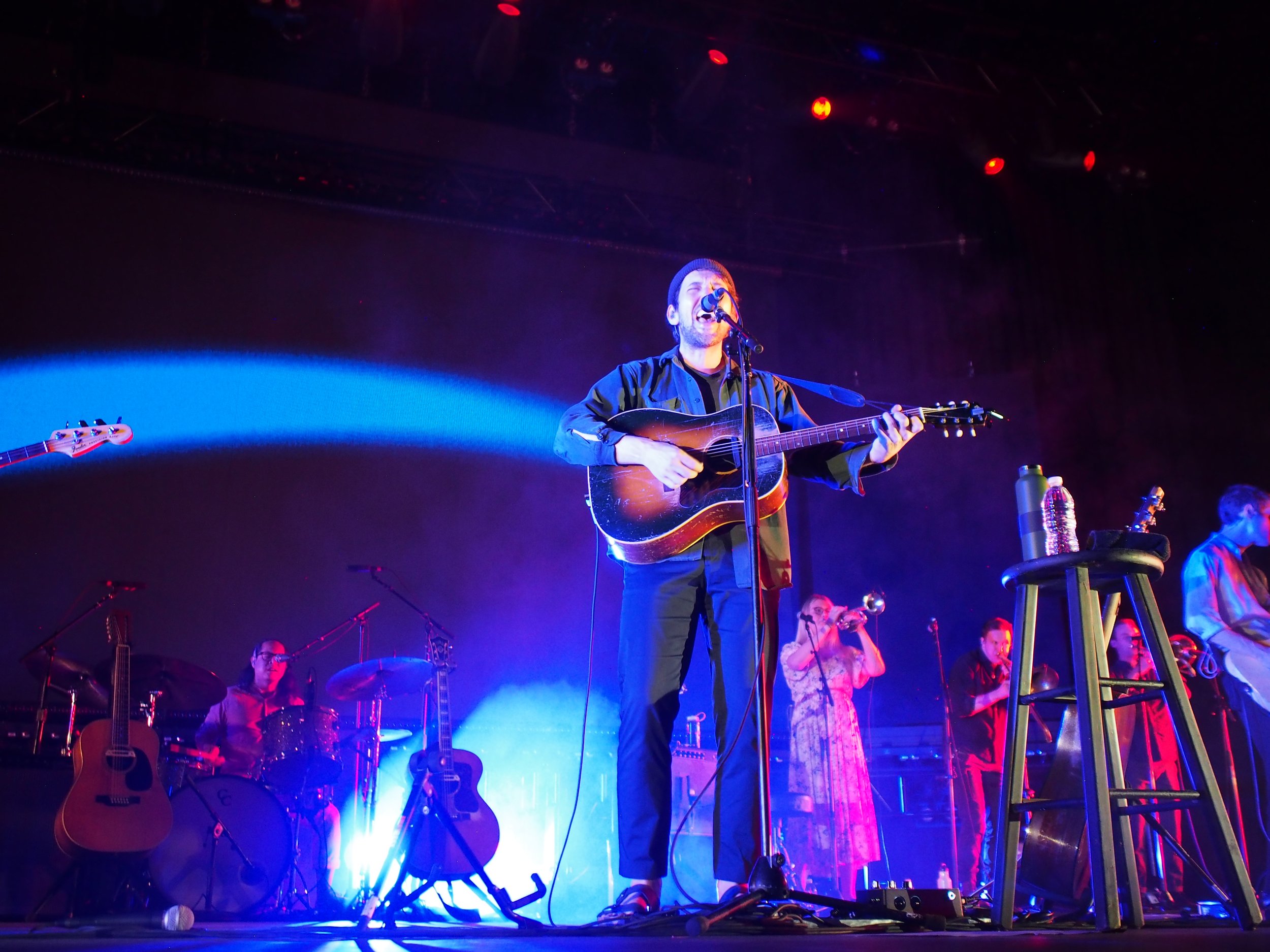
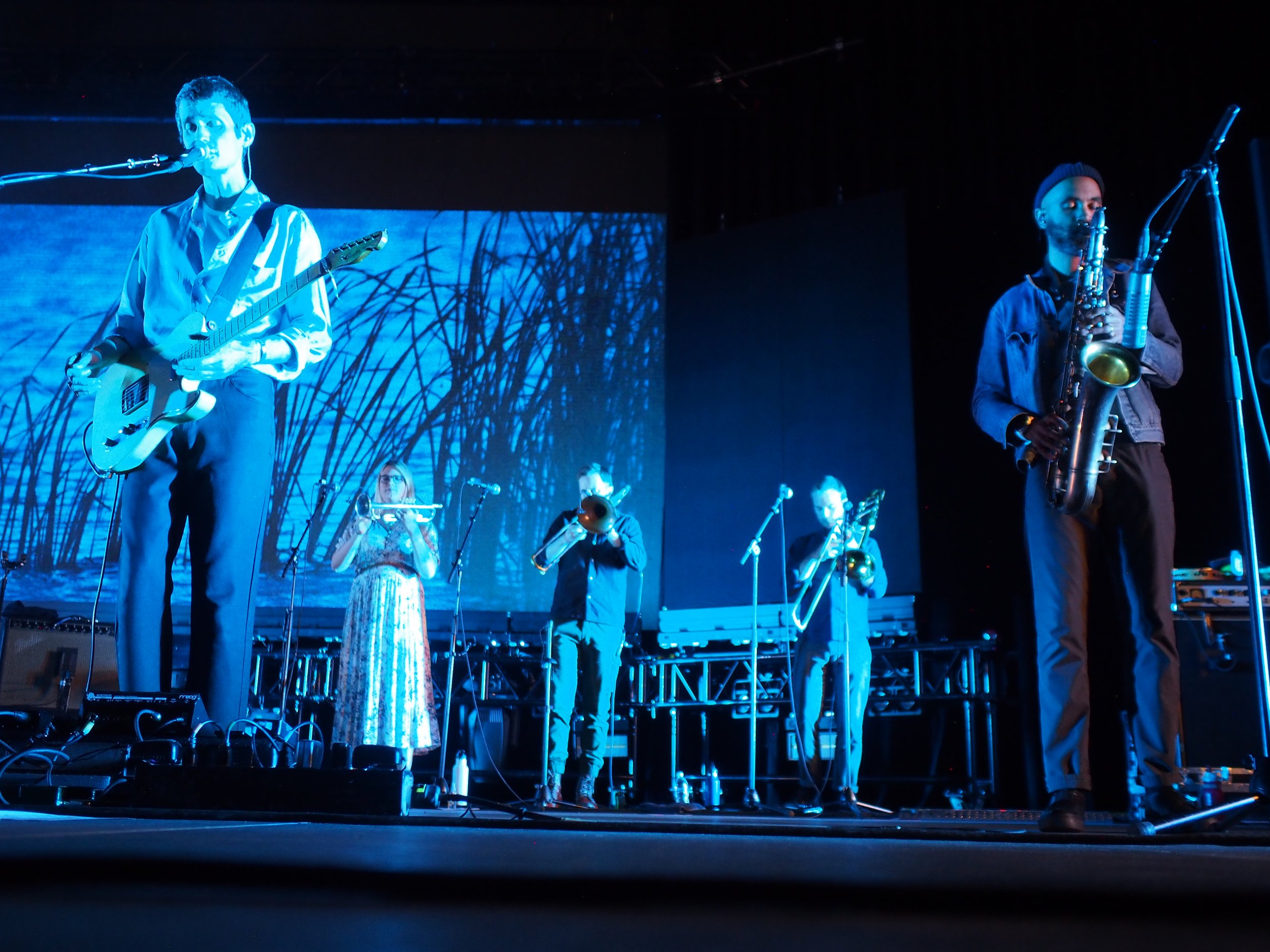

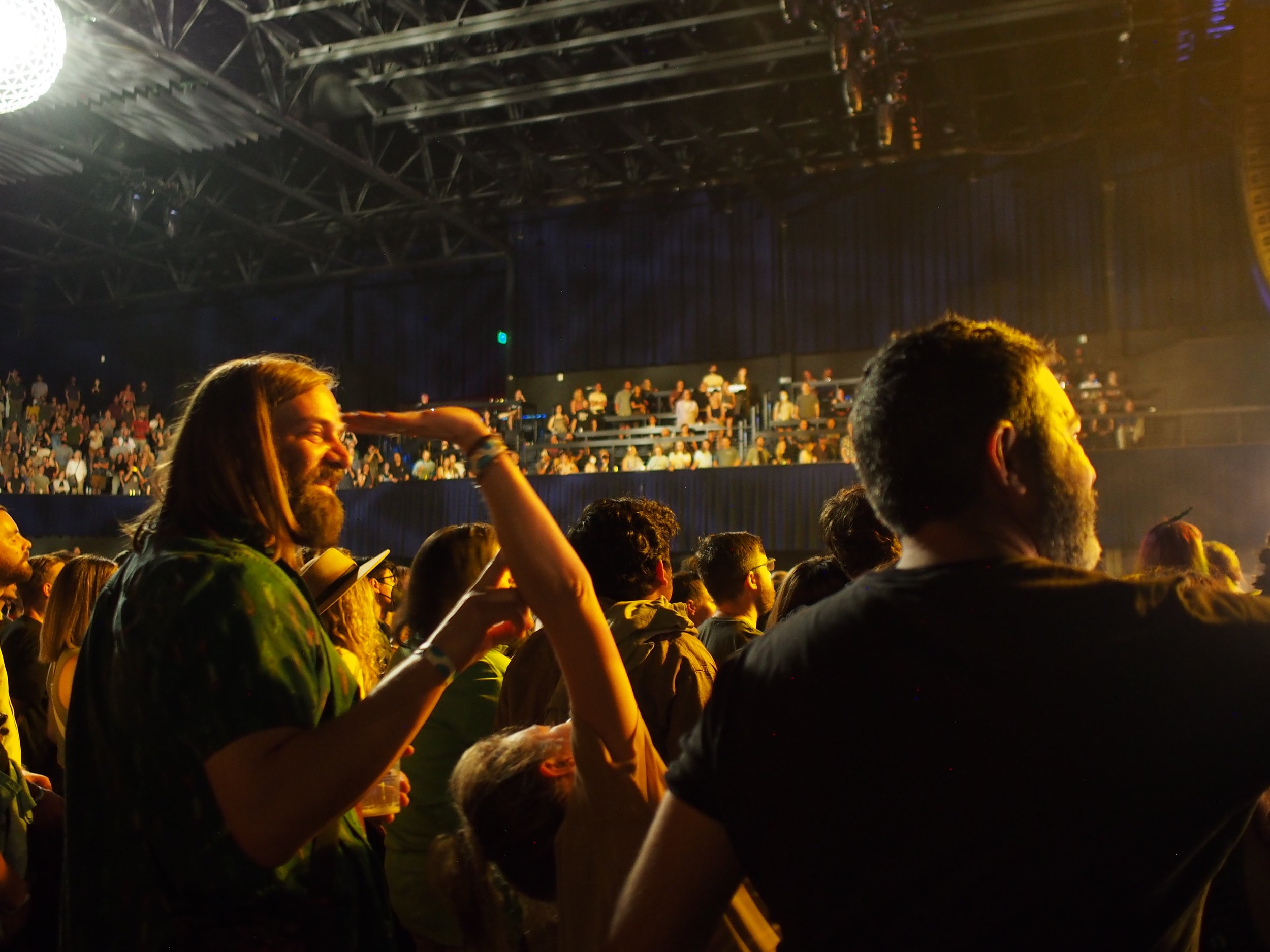
Fleet Foxes played at Mission Ballroom on Tuesday, June 28th on a rescheduled tour for their 2020 album, Shore. Colorado was the second state the band hit on their international tour, with an itinerary that will take them from the West coast to the East coast, and then onwards to the Netherlands, England, Scotland, Belgium, Germany and France. Shore, written in 2018 by Robin Pecknold and recorded between September 2019 and September 2020 (during the Covid-19 pandemic) was nominated for best alternative album during the 64th Annual Grammy Awards.
Fleet Foxes, fresh on the road, played a studio-quality set and an encore with their opening act Tim Bernades. The Shore tour came two years after the album dropped, and Fleet Foxes started their set with three tracks from Shore including “Wading in Waist-High Water”, “Sunblind”, and “Can I Believe You.” They peppered in a few covers, including “Phoenix” by Big Red Machine, and “The Kiss” by unsung 70’s folk-hero Judee Sill. Fleet Foxes also pulled heavily from their self-titled album with instantly recognizable anthems like “Mykonos”, “White Winter Hymnal”, “Blue Ridge Mountains”, and they topped it off with their title-track “Helplessness Blues” off of the 2011 album during the encore.
Coloradans came in droves to Mission Ballroom, and despite the facts that Mission Ballroom is both a relatively new addition to the Denver roster and a stretch further than the Rino district, the floor and the balcony were both packed.
“By the way, how is everyone doing?” asked Robin Pecknold after he, Morgan Henderson and the rest took to the stage. The crowd reared up in response, and Robin responded with “I can already tell this is gonna be a great night.” Someone from the crowd yelled out, “Hey Robin, what are you drinking?” and Robin said without skipping a beat, “throat-soothing honey tea.”
Morgan Henderson notably played percussion, sting and wind instruments throughout the set, slipping quietly to the side after a song and returning with yet another instrument. Henderson played a tambourine, a shaker, a hollow-body upright bass, a flute, and a saxophone.
The thing that makes Mission Ballroom stand-out is the acoustics: not only was the sound guy a talented SOB, the sound was virtually without echo or distortion. And because of the fantastic acoustics, the band could hear the audience just as well as they could hear the music. When Fleet Foxes played toned-down, quieter tracks, a still, tangible quiet settled over the crowd–one could almost feel the vibration in the air.
It goes without saying that live music is a luxury and we’ve all missed out on the opportunity to attend concerts and festivals in recent years. I’ll risk being hyperbolic by saying that Fleet Foxes was one of the best shows I’ve seen in awhile–knowing full well that I really haven’t seen a lot of shows in awhile. In the least, it was one for the books.
Fleet Foxes played eighteen songs during their two-hour set, at elevation no less. The band was somehow able to play a spot-on set while the packed 3,950 person capacity Mission Ballroom felt like an intimate, one-on-one concert experience. It’s easy to see that the band has somehow balanced a casual stage presence with an airtight professionalism, and you can bet that the next time they’re in town we will be there singing the opening “Mykonos” riff loudly and erringly off-key with the best of them.
Written by Kendall Morris




